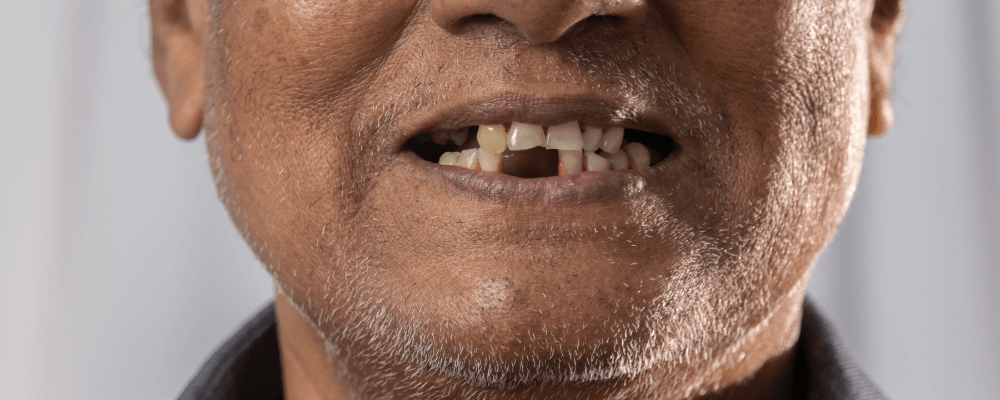The Most Common Dental Emergencies in the UK
Dental emergencies can strike at any time, causing pain, discomfort, and anxiety. In the United Kingdom, several dental issues frequently require urgent attention. Understanding these common emergencies can help you prepare and respond effectively when they occur.
Toothaches, often caused by decay or infection, top the list of dental emergencies in the UK. These painful experiences can disrupt your daily life and require immediate attention. Cracked or chipped teeth, often resulting from accidents or biting hard objects, are another prevalent issue that demands prompt care.
Lost fillings and crowns, while not always painful, can expose sensitive areas of your teeth and require swift action to prevent further damage. Knocked-out teeth, particularly common in sports-related injuries, necessitate a rapid response to increase the chances of successful reimplantation. Lastly, soft tissue injuries, such as cuts to the gums or tongue, can be distressing and may need professional intervention to ensure proper healing.
Toothache Troubles: Causes and Immediate Relief
Toothaches can range from mild discomfort to excruciating pain, often signalling underlying dental problems. Common causes include:
- Tooth decay
- Gum disease
- Cracked or chipped teeth
- Exposed tooth roots
- Sinus infections
When faced with a toothache, you can take several steps for immediate relief:
- Rinse your mouth with warm saltwater to reduce inflammation
- Apply a cold compress to your cheek to numb the pain
- Take over-the-counter pain relievers, following the recommended dosage
- Use dental floss to remove any food particles trapped between teeth
- Apply a small amount of clove oil to the affected area for its natural numbing properties
While these measures can provide temporary relief, it’s crucial to consult a dentist if the pain persists or worsens, as it may indicate a more serious issue requiring professional treatment.
Cracked or Chipped Teeth: What to Do When Disaster Strikes
A cracked or chipped tooth can occur suddenly, often catching you off guard. Whether from biting down on something hard, a sports injury, or gradual wear and tear, this dental emergency requires prompt attention to prevent further damage and potential infection.
If you find yourself with a cracked or chipped tooth:
- Rinse your mouth with warm water to clean the area
- Apply a cold compress to the outside of the cheek to reduce swelling
- Cover the damaged area with temporary dental cement (available at pharmacies) if needed
- Avoid biting down on the affected tooth
- Take over-the-counter pain relievers if necessary
It’s important to schedule an appointment with your dentist as soon as possible. They can assess the extent of the damage and recommend appropriate treatment, which may include bonding, veneers, or a crown, depending on the severity of the crack or chip.
Lost Fillings and Crowns: Temporary Solutions
Losing a filling or crown can be alarming, but it’s a common dental emergency that often occurs due to wear and tear or decay beneath the restoration. When this happens, your tooth may become sensitive to temperature changes and pressure.
To manage a lost filling or crown temporarily:
- Clean the affected area gently with warm water
- If you have the crown, you can try to reattach it using dental cement or a temporary adhesive from a pharmacy
- For a lost filling, use dental wax or a temporary filling material to cover the exposed area
- Avoid chewing on the affected side of your mouth
- Maintain good oral hygiene to prevent further decay
Remember, these are only temporary solutions. It’s essential to see your dentist promptly to have the filling or crown properly replaced or repaired. Delaying treatment could lead to further damage or infection of the tooth.
Knocked-Out Teeth: The Race Against Time
A knocked-out tooth is one of the most time-sensitive dental emergencies. Quick action can make the difference between saving or losing the tooth permanently. If you or someone you know experiences this:
- Locate the tooth and pick it up by the crown (avoid touching the root)
- Gently rinse it with milk or saline solution if available (do not use water)
- Try to reinsert the tooth into its socket if possible
- If reinsertion isn’t possible, store the tooth in milk, saline solution, or between your cheek and gum
- Seek emergency dental care immediately – ideally within 30 minutes
The chances of successful reimplantation decrease significantly after an hour, so time is of the essence. Even if you can’t save the tooth, it’s crucial to see a dentist to discuss replacement options and ensure that no other damage has occurred.

Soft Tissue Injuries: Managing Cuts and Lacerations
Injuries to the soft tissues of your mouth, including your gums, tongue, and inner cheeks, can be painful and may bleed profusely due to the rich blood supply in these areas. These injuries often result from accidental bites, sports impacts, or falls.
To manage soft tissue injuries:
- Rinse your mouth with a mild saltwater solution
- Apply pressure to the bleeding area with a clean, damp cloth or gauze
- For swelling, apply a cold compress to the outside of the affected area
- If bleeding doesn’t stop after 15 minutes of constant pressure, seek emergency care
While many soft tissue injuries heal on their own, severe lacerations may require stitches. It’s advisable to have a dentist or doctor examine significant cuts to ensure proper healing and reduce the risk of infection.
Preventing Dental Emergencies: Essential Tips and Habits
While some dental emergencies are unavoidable, many can be prevented with proper care and precautions. Incorporate these habits into your daily routine to minimise the risk of dental emergencies:
- Maintain excellent oral hygiene:
- Brush twice daily with fluoride toothpaste
- Floss at least once a day
- Use an antiseptic mouthwash
- Protect your teeth during sports:
- Wear a custom-fitted mouthguard for contact sports
- Consider a mouthguard for non-contact sports that pose a risk of falls
- Be mindful of your diet:
- Limit sugary and acidic foods and drinks
- Avoid chewing on ice, popcorn kernels, or hard sweets
- Break harmful habits:
- Don’t use your teeth as tools to open packages
- Avoid biting your nails or chewing on pens
- Address dental issues promptly:
- Don’t ignore minor tooth pain or sensitivity
- Have chips or cracks repaired as soon as possible
By following these preventive measures, you can significantly reduce your risk of experiencing a dental emergency and maintain better overall oral health.
The Importance of Regular Dental Check-ups in Avoiding Emergencies
Regular dental check-ups play a crucial role in preventing dental emergencies. These routine visits allow your dentist to:
- Detect early signs of decay or gum disease
- Identify weakened fillings or crowns that may need replacement
- Spot hairline cracks or wear patterns before they become major issues
- Perform professional cleaning to remove plaque and tartar buildup
- Provide personalised advice on improving your oral hygiene routine
Aim to visit your dentist at least twice a year for check-ups and cleanings. If you have a history of dental problems or are at higher risk due to factors like smoking or diabetes, your dentist may recommend more frequent visits.
Remember, prevention is always better than cure. Regular check-ups can help you avoid the pain, inconvenience, and potential costs associated with dental emergencies.
When to Ring Your Dentist: Recognising True Dental Emergencies
While it’s important to seek prompt care for dental issues, not all situations require immediate emergency attention. Understanding what constitutes a true dental emergency can help you make informed decisions about when to seek urgent care.
Consider the following scenarios as dental emergencies:
- Severe, persistent toothache that doesn’t respond to over-the-counter pain relievers
- Knocked-out permanent tooth
- Loose adult tooth or tooth that has been pushed out of position
- Significant chip or fracture in a tooth, especially if it’s causing pain
- Swelling in the face or gums, which could indicate an abscess
- Bleeding that doesn’t stop after applying pressure for 15 minutes
For these situations, contact your dentist immediately or seek emergency dental care. Many dental practices offer emergency appointments or have after-hours contact information for urgent cases.
Non-emergency situations that still require prompt attention (within a day or two) include:
- Lost filling or crown (if not causing severe pain)
- Cracked or chipped tooth without pain
- Dull toothache
- Food stuck between teeth
- Broken or irritated orthodontic wire
When in doubt, it’s always best to call your dental practice for advice. They can assess your situation over the phone and guide you on the best course of action.
In conclusion, being prepared for dental emergencies and taking preventive measures can save you from pain, stress, and potentially costly treatments.


